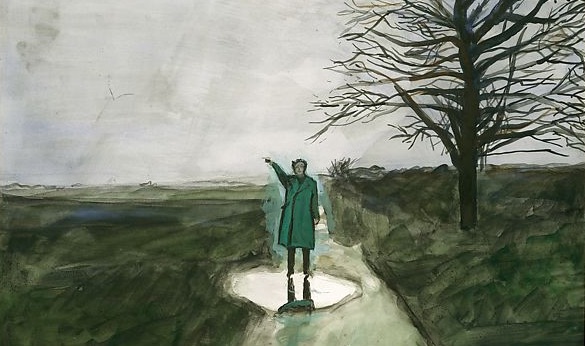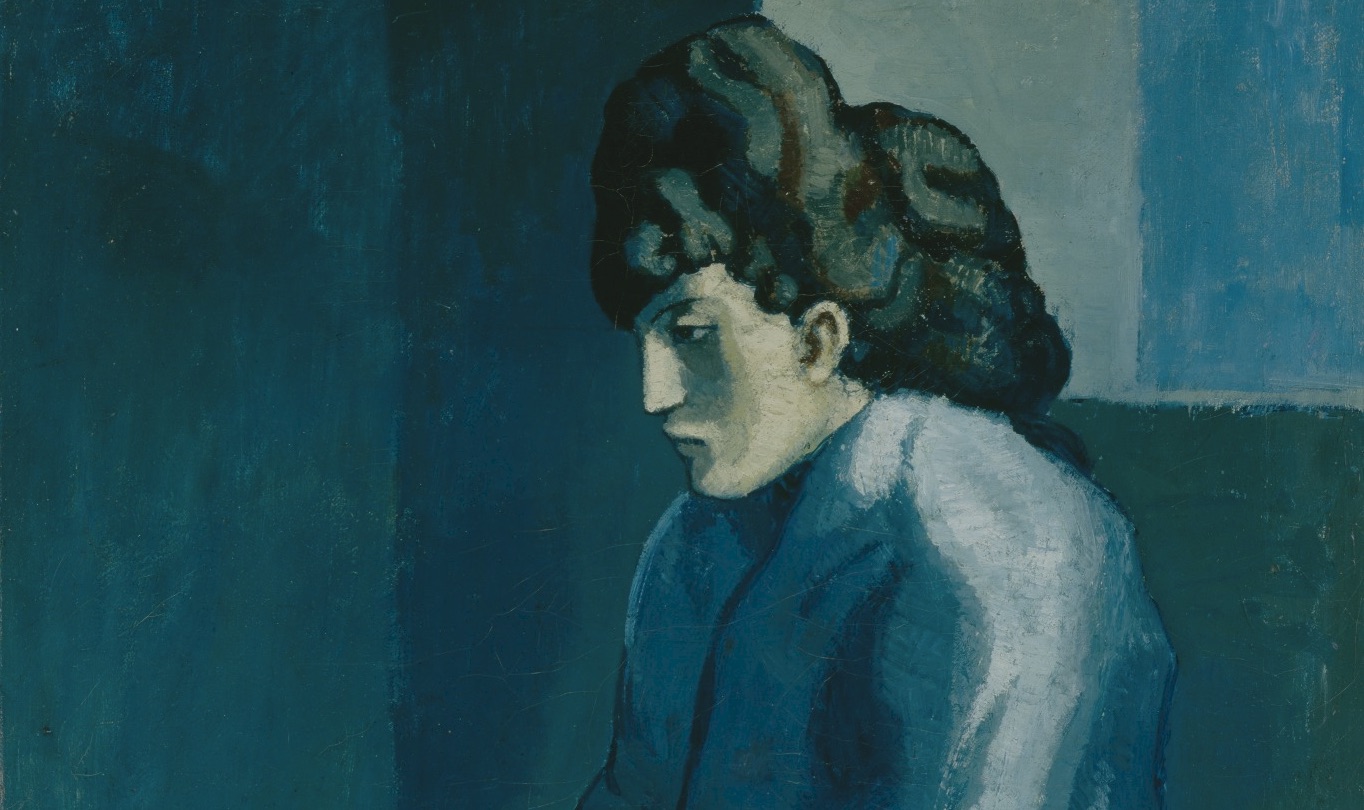
[Read Part One of this series here.]
*
Our genetic endowment and cultural experiences determine our values.
Our values determine our perspective.
Our perspective determines our perceptions.
Our perceptions disclose our values.
This is life in the world.
*
The world is like a kind of inherited grammar, concerning which it is idle to seek an explanation (although we may rightly wonder at existence). Better to live well and make life interesting.
*
The self is a temporal process whose complexity defies definition.
*
If we were always fully self-conscious, instead of living the dream life that we normally do, we would always be in a state of shock, for our awareness of our own being is freakish.
*
Inequality produces envy. Equality produces ambition. The error is to conceive of either state as a problem to be permanently solved. Struggle itself—the condition for deep value—is the point.
*
Amid incessant group struggles, people, to realize their interests, pretend they are against group struggles. For victory is a form of deceit.
*
It is not so much that nature loves to hide as that man does not wish to see.
*
Reason is the will’s shameless whore.
*
We condemn life in order to endure it.
*
It is prudent to trust others only insofar as their well-being depends on us. Yet prudence and wisdom are not the same. And it can be wise to take a leap. Nor is life worth living otherwise.
*
Since we are all impossible, we ask the impossible of each other, for tolerance, forgiveness, mercy, compassion, love.
*
Democracies may be founded by great men, and it is rarely long before only great men can save them.
*
A worthy enemy is superior to a weak friend.
*
Nature has two remedies for weak and decadent peoples: war and death.
*
For some, suffering now assumes a noble aspect, though only as a contrast to the white noise that is the rest of life.
*
People have never been so touchy about their depravity. “Don’t judge me,” they all say.
*
Just how essential and unavoidable authority is, is shown by the fact that it is intrinsic to our language in the form of the imperative sentence. For one to tell another what to do is one of the most common human activities. Nor could it be otherwise.
*
From the mere existence of self-deception it can be seen that truth is not paramount in our nature.
*
There are hard truths which many well-educated and very intelligent people have not the strength of will to understand. Theirs is a defect of character, not of reason.
*
To profess entails making enemies, while a man of knowledge and conviction could not be more unwelcome in our spineless era.
*
Greater than talent is the passion that fuels it, and the passion is a greater mystery, too.
*
When we say a person has a gift, we mean that he has an ability for which we cannot account. We mean that, in a sense, he is a mystery.
*
The thinker, the writer, and the moralist all share this in common: that the supreme good is self-honesty, for without this the most vital knowledge is obscured.
*
From never having tried to understand our desires we fall into more complicated miseries which we also do not understand.
*
Boredom drives us away from renunciation, too, and back to the desires we were already sick of.
*
Absolute reform would require that we cast off desire itself. And yet many live for little else.
*
By our games of desire the world itself abides.
*
As a general rule, the more someone talks about rights, the less he has probably pondered justification.
*
Most people do not realize how very like the other animals they are. They can watch, say, National Geographic, and though they see a largely futile struggle with need in circumstances beyond the animals’ control, they still do not perceive a representation of their own condition, because it is obscured by their (unknowingly) vain expectations, which are not grasped until late in life, if at all.
*
A believer—a Christian or Jehovah’s witness, I presume—rang my doorbell.
“Excuse me, Sir, I don’t mean to bother you, but I’d like to share some literature with you.”
“Thank you, Sir, but I am not interested.”
Afterward it occurred to me how much I—a writer—have in common with that solicitor. I do hope that my vanity is more fruitful than his.
*
Writers used to feel obliged to kowtow to royalty. Later they tried to advance by making the right friends in cafes and other social contexts. Today this creature of egoism demonstrates unusual progress, singing the song of himself in automated fashion via social media.
*
The specialist, to become a generalist, would require the gratified vanity of perceived social distinction: a desire already met by his status as specialist. Meanwhile, the world’s regard is about as worthwhile as a used Kleenex, and looks no better. Only the true man of knowledge becomes a generalist. His deep and wide curiosity is an inner value.
*
Man has been indicted as the only animal who lies, cheats, steals, and so forth. Yet in view of the brutally competitive, indeed rapacious character of life on earth, it may be that the other animals would do these things too, if only they could. After all, they do engage in all sorts of simulation. Perhaps one day they too shall know profound guilt and shame.
*
There is nothing a person loathes more than the realization: “That person is better than me.”
*
Democracy is superior to monarchy insofar as stupidity is less formidable than evil.
*
What is great merits reverence, but he does not wish to revere who cannot recognize what is great.
*
In our time, the obscenity of fame is that people are massively known of but not known, and not for good reasons either, usually. God have mercy on our success.
*
Having learned from suffering, we do not necessarily find that this knowledge comes to much, and whether we do or not is probably a matter of temperament, which is beyond our control.
*
One of the advantages of getting older is that our contempt for the next generation seems more justified. Having had more time to be stupid than they, we are likely to be less stupid than they.
*
It is because we are too complex for our own good that it is such a virtue to live simply.
*
Unlike what is simple, what is easy is rarely worth much.
*
Youth is the happiest time of life because it is the simplest; as we age we become complicated, and therefore unhappy.
*
When we are young we know certain important things in embryo which, as experience reveals them to us in greater depth, basically become affairs of the moral will, of the most demanding application.
*
We go to philosophy thinking we will find important answers; we are fortunate if we are able to clarify our confusion.
*
Some are so discriminating and exacting concerning just authority that they are rarely inclined to recognize any authority, the world being what it is.
*
I have an appointment with a stranger. Beforehand, let me be good to myself: let me remind myself that, like me, he is likely to be essentially wicked.
*
Her beauty is a burden, a decadence, a corruption waiting to unfold.
*
They do not take seriously the fact that they shall die, and this enables their senseless way of life—which is an irredeemable error.
*
Life reaches its peak when we have an abundance of expectations before us. It reaches its decline once we understand them.
*
Dissimulation disgusts us, but it is necessary since other people are worse than our intuitions intimate, just as we are worse than we admit to ourselves.
*
Hold your head high, son of man; if you are lucky a dog might lick you.
*
America is no longer a country but a marketing whorehouse.
*
Truth is on the side of severity, and sentimentalism is the kiss of death.
*
Comedy allows for cruelty; tragedy naturalizes it.
*
It is the genius of comedy to not only reveal the fraud of social life, but to make it enjoyable.
*
Comedy thrives when people look life square in the face. Comedy is dying in the United States because Americans are afraid of life itself.
*
Education today consists of the lies we require to tolerate one another.
*
We spend all life learning how horrible things are, though for some there eventually comes a grace in learning the insignificance thereof. But from another perspective that insignificance, too, is horrible.
*
Our time’s idol is Reason, and in practice this idolatry typically entails the conflation of Reason with progressive prejudices, as if the latter were intrinsic to the former. Of course, it is not so, and therefore, where argument does not avail—enabling, for example, compromise between groups that initially had incompatible ends—the only recourse is force.
*
One reason that it is so common to mistake lack of proof for positive disproof is that belief in this fallacy psychologically reinforces what we do not want to be the case.
*
It may be that when people stop working with their hands and with the earth they become incapable, many of them, of sober and severe judgment on hard questions, their excessive ease having made them weak of mind and will alike.
*
The harried poor long for free time; the idle rich fail to put it to good use.
*
Having never learned the pleasures of the mind, today the young, once they are sick of the pleasures of the body, have no pleasures at all.
*
The trouble with goodbye is hello.
*
There are many people who are honest and good enough to despise themselves, but not enough to change.
*
He cannot accomplish much who is unwilling to see and to accept things for what they are.
*
The subsequent absence feels greater than the gain because the gain itself was born of absence: the greater pain is in the return to the prior, primary state, though it now feels like a fall from a height.
*
From seeming trifles we can divine terrible truths.
*
Is it that all along we needed a God to keep us in check, in fear of what we ourselves are?
*
Enmity is the psychological corollary of the most vital disagreement.
*
Gossip is a subtly hateful sustenance, people feeding on the knowledge of misfortune without there being any perceived wrongdoing on their part. And for this reason gossip is most dear.
*
Friendship is a refuge from the self, and our need for it shows that complete self-sufficiency is an illusion.
*
The era’s supreme nihilism: eros as a digital calculation, and the exchange of feeling forever mediated by a machine.
*
From the shame of one man’s wealth we may see the dignity of another’s poverty.
*
It is tragically comic that often the source of a pain seems unworthy of the pain itself, the pain being so much more powerful than—so disproportionate to—its source. There are tragedies that result from mere trifles.
*
The heart is deceitful above all things because people typically care more about their own interests—so precious, transient, and conflicting—than about their sense of duty to others. After all, that duty itself tends to serve self-interest.
*
The loss of tradition means the loss of honor; hence why so few today can be bothered to keep their word.
*
There is a wealthy man I know. He is aware in some sense, it seems to me, that his wife is with him mainly for his money. And I think that, although he may be troubled by this knowledge in certain moments, still there are vital things he wants from and with her, in virtue of which he is willing to overlook this knowledge most of the time. Now I believe such thinking, this both knowing and knowing-not, is quite common in human relationships, perhaps inevitable. Not unlike our frequent desire—is it rather a need?—to ignore the complete truth about ourselves.
*
There is a tendency to celebrate the common man, as if he were necessarily better in a moral sense than the more successful type. The truth is that the latter is not worse, on average, as a moral agent than the former. The common man is simply not as successful or well-connected, not as clever or as ambitious as his “social better.” From a moral point of view, neither type, on average, is any better or worse than the other. In particular circumstances, one’s character reveals itself, and most people will prove to be quite mixed.
*
The essence of democracy: the base majority tyrannize the elite few, lest it be the other way around.
*
The times when no one contacts us are more representative of the truth of our condition than the times when we are flooded by contact, for in much communication there is the illusion of understanding and concern.

